ECOWAS exits and Afrodemocracy: The search for a renascent Africa?
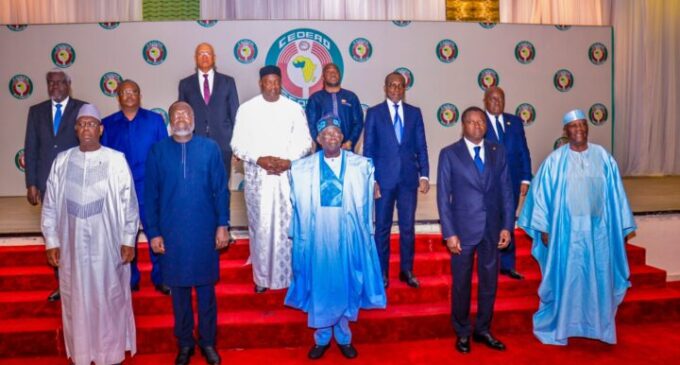
“I listened to them and concluded that we have a new phenomenon on our hands. So we have a situation where we have a continent where we have to rethink democracy”. (Olusegun Obasanjo, 2023).
Perhaps, Obasanjo’s predictions from 2021 are precise. On Sunday Jan 24, 2024, the political leaders of Burkina Faso, Mali and Niger Republic shocked the continent, by announcing their immediate exit from the Economic Community of West African States (ECOWAS), the official regional economic community (REC) for West Africa by the African Union (AU). That the countries hinged their action largely on the failure of the sub-region’s REC to abide by pan Africanist principles, may necessitate the need for a reaffirmation of the Renascent Africa philosophy as promoted by Nnamdi Azikiwe, as well as some review of the recent efforts by Olusegun Obasanjo to promote ‘Afro Democracy’, as a means of salvaging multilateralism in Africa.
Prior to their decision to exit from ECOWAS, the three countries had on September 16, 2023, signed the Liptako-Gourma Charter, that established the L’Alliance des États du Sahel (AES), known in English as the Alliance of Sahel States (ASS). This charter named after the Liptako-Gourma region, where the borders of Mali, Burkina Faso, and Niger converge, is a defence and economic pact, that effectively created a confederation within ECOWAS. While the defense part of the charter enables joint military assistance if any member is attacked, the economic part facilitates the establishment of a new fiat currency called ‘Sahel’. The Ministers of Finance and Economy of the ASS countries met on November 25, 2023 in Bamako, to develop the foundations of the Sahel currency, with one Sahel being the equivalent of 1000 CFA. A new finance bank that will be financed by Russia, China, and Turkey, is being established, alongside a common airline company, a common judicial system, and a central civilian nuclear centre with regional scope.
The establishment of the ASS and the decision of the member countries to exit ECOWAS, which is one of the better integrated RECs in Africa, are actions that effectively defeat the gains of multilateralism, especially in West Africa. With the ‘Treaty Establishing the African Economic Community’ (Abuja Treaty) of 1991 by the AU, which designs RECs as the building blocks of effective and beneficial multilateralism, and a Pan African ‘African Economic Community’, the damage that the actions of these countries can cause to Africa, and effective economic integration in the continent, can be appreciated in better context.
For Nigeria- Africa’s largest economy and most populous country- multilateralism has been beneficial, including in relations with the ASS countries. These three countries not only constitute about half of ECOWAS landmass, they also occupy nearly 50 percent of the ECOWAS airspace. Their geographical location makes it faster for aviation traffic from Nigeria to Europe and parts of Asia, as circumventing these countries will add an extra two hours of flight time, with the associated cost and risks. Also, Nigeria’s aviation authorities earn over-fliers foreign exchange revenue from flights from southern Africa, which will be lost if the ASS countries discontinue relations with Nigeria, as that alters the Europe bound flight patterns. There are also possible implications for Nigeria’s export sector, as goods produced in Nigeria such as beverages, foot-wears, electric cables, polytene bags, electronics, pharmaceuticals, creams, soaps, detergents, toothpaste, apparels, shoes and bags, are exported in significant quantities to these countries. If these mostly non-oil products are restrained from these markets, it hampers Nigeria’s strategic economic drive to improve non-oil exports and create manufacturing jobs.
And what did Obasanjo, a two-time President of Nigeria observe in 2021? In an interview with TheCable in 2023, he mentioned that he had visited Guinea in 2021, after the overthrow of President Alpha Conde. Given the support he observed the new junta had among the people, especially the youths, among other observations, this very experienced leader and promoter of democracy concluded that the phenomena were something that required a bit more analysis. He shared his thoughts with the Chairperson of the AU Commission, who concurred on the concerns about the failure of democracy in Mali, Chad, Burkina Faso and Guinea. Based on these Obasanjo, opined that liberal democracy, given its western hemisphere origins, have become unsuitable for Africa. He buttressed the point with postulations about how liberal democracy was also proving ineffective in the western hemisphere, where it originates from.
‘Afro Democracy’ subsequently became the form of democracy that Obasanjo has since advocated for, as a democratic form that is fit for the African continent. On November 20, 2023 the Olusegun Obasanjo Presidential Library in Abeokuta, Ogun State, convened a “High-level Consultation on Rethinking Western Liberal Democracy in Africa”. Though the consultative events deliberated on what the alternate features of a feasible form of African democracy should be, the event ended with wordings to the effect that the details of ‘Afro Democracy’ are being developed. And it is within this need for philosophical contextualization of what African democracy should mean, as well as the need to promote Pan African socioeconomic ideals, that we recall the philosophy of the ‘Renascent African’.
Developed by Dr. Nnamdi Azikiwe (Zik of Africa), Nigeria’s first President, Renascent Africa or Zikism, is a philosophy designed to address the socioeconomic and political needs of the peoples of Africa, and given flesh in his book titled ‘Renascent Africa’, written in 1937. The five pillars of Zikism, which should lead to the desired renaissance on the continent, are spiritual balance, social regeneration, economic determinism, mental emancipation and political resurgence. With spiritual balance, Africans will demonstrate empathy for the views of others, and recognize their right to hold such views; while social regeneration requires Africans to banish all forms of national, religious, racial, tribal, political-economic, and ethical prejudice. Economic determinism promotes the understanding that being self-sufficient economically is the basis for rescuing the Renascent African, and mental emancipation entails all Africans being knowledgeable of African history and accomplishments, as means to dismiss any kind of complex exhibited by any race or tribe. Political resurgence involves regaining the sovereignty that Africa has lost to colonialists.
For Azikiwe, who was a mentor to other leading African greats, such as Kwame Nkrumah, Julius Nyerere, Nelson Mandela among others, the implementation of the Renascent African philosophy will not just address the socioeconomic and political challenges of the continent, but also enhance the development of a true Pan African identity. This would also facilitate stronger multilateralism, as well as the ideal ‘United States of Africa’. Essentially, the Zikism philosophy breeds a democratic form that prevents or addresses the root causes behind the exit from ECOWAS by Mali, Niger and Burkina Faso, while salvaging the prospects of effective and beneficial multilateralism in Africa.
Zik’s thought process is not utopian. He had advocated for the ‘Diarchy’, essentially a form of civilian military government, as a realist pathway for addressing the challenge of military incursion into democratic politics in Africa. Diarchy required that a timeline be given for military governments to be eased off from the democratic space, given that the military may have played constructive roles in stabilizing developing countries that had gone through the vagaries of colonialism and civil wars. Azikiwe’s diarchy postulations were first made at the Samuel Jereton Mariere Memorial Lecture, organized by University of Lagos students, were he was Chancellor of the university, on October 27, 1972. The treatise was subsequently published as the book ‘Democracy with Military Vigilance’ in 1974. Therefore, the thought process of Azikiwe provides pathways to resolving some of the situations that triggered ASS.
And some small details. The ASS is to large parts, an anti-France protest, as can be deduced from their ECOWAS exit statements. This dimension is better appreciated considering that the Burkinabe government on December 6, 2023, officially degraded the French language from being the country’s lingua franca, to simply as a working language, implying that one of the indigenous languages will replace French language. The expulsion of French Ambassador from Mali on January 31, 2022, and French Ambassador from Niger on August 31, 2023, are further indicators of the anti-France nature of the ASS. What this therefore means for ECOWAS, especially its leadership, is that it cannot be seen as being too cozy with France, in a way that infers loss of sovereignty. Therefore, the recurrent ‘private visits’ to France by the ECOWAS Chairman should be discontinued, or the leadership of ECOWAS ceded to a Head of State who will not be constrained from not being able to spend appreciable time in France.
It should be highlighted that competing philosophies for the continent, have not been in short supply. Nkrumah promoted ‘Consciencism’, Nasser advocated for a liberation philosophy known as ‘Nasserism’, while Nyerere championed ‘Ujamaa’, as a form of socialist ideology for socioeconomic development. The private sector is also not left out, as the ‘Africapitalism’ philosophy promoted by Tony Elumelu, the Nigerian-born Chairman of UBA bank and Heirs Holdings, has gained considerable mileage with different governments and international organisations. Africapitalism highlights the critical role of the African private sector, in addressing the socioeconomic challenges of the continent. The Renascent Africa philosophy however stands out, as the feasible and encompassing vision that should be adopted and promoted, as a panacea to the challenges of good governance, democracy and socioeconomic development in Africa.
Azikiwe and Obasanjo share similarities in worldview and pan-African dispositions, so adoption of Renascent Africa as the underlining ‘software’ of what Afro Democracy should mean in detail, should be a seamless process- though with updates that may address any outstanding contemporary situations. While the role of Zik in mentoring African greats such as Nkrumah, Nyerere, Mandela is established, Obasanjo has also done a lot for the continent, with his contributions towards the establishment of the AU, the New Partnership for Africa’s Development (NEPAD), African Peer Review Mechanism of the AU, among other contributions. Obasanjo currently chairs the Intra-African Trade Advisory Council (IATAC) of the African Export-Import Bank (Afreximbank), and was among the lead advocates in 1999 that non-democratic African countries should be suspended from AU- a policy he now accepts is no more feasible.
With the contemporary challenges with multilateralism, democracy, development and good governance in Africa, the time is appropriate to actively develop an appropriate narrative and democratic model, as being done by Olusegun Obasanjo. What Afro Democracy as a philosophy aims to actualize as a philosophy, has been conceptualized in the Renascent Africa by Nnamdi Azikiwe. For democracy, peace and development in Africa, it is time for adoption of the Renascent Africa philosophy, to enable the renaissance of the continent.
Uwanaka, PhD, writes from African University of Science and Technology, Abuja. [email protected]
Views expressed by contributors are strictly personal and not of TheCable.


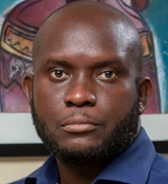




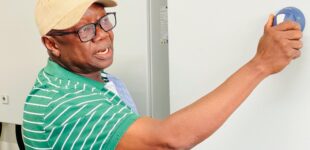
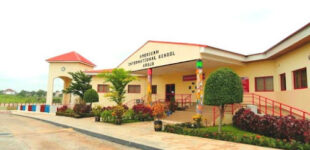
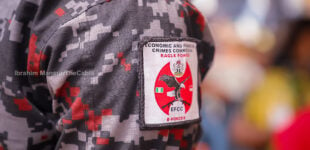

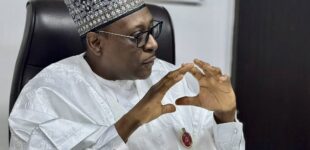





There are no comments at the moment, do you want to add one?
Write a comment